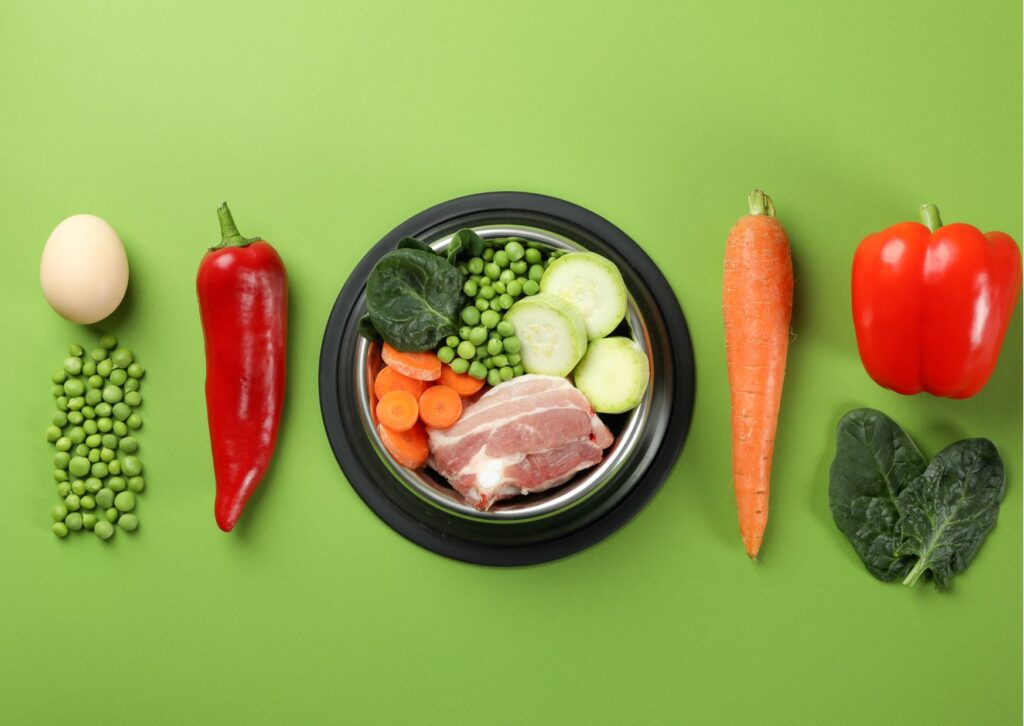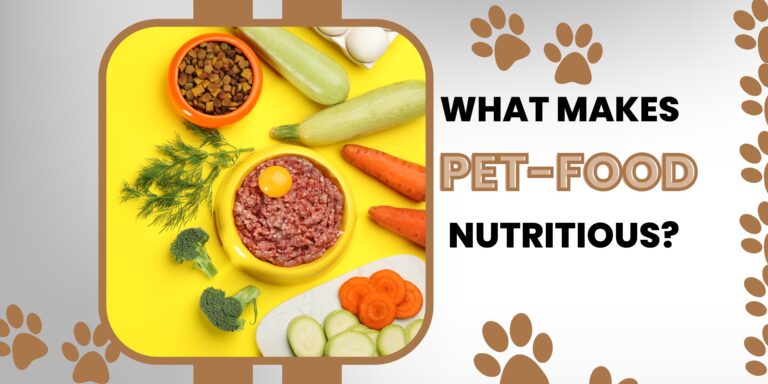When it comes to keeping your pet healthy and happy, one of the most important things to consider is their diet. Pet food can be confusing, and it can be hard to know what is truly nutritious. In this blog post, we will break down the ins and outs of pet nutrition. We will look at the differences between organic and non-organic pet foods, the benefits of dehydrated, freeze-dried, and raw diets, and how to analyze ingredients and nutritional content. We will also explore pet food supplements that can provide extra nutrition.
Pet Food
It’s no secret that pets are members of the family, and they deserve the best possible care.

That means providing them with a nutritious diet that meets their specific needs. Luckily, there are many different types of pet food on the market today, all of which have their own unique benefits.
One of the most important factors when it comes to selecting a pet food is its nutrient content. Pets need essential nutrients to stay healthy, and many pet foods contain all of the necessary nutrients in an appropriate ratio. In addition to containing essential nutrients, pet foods also often contain fiber and other beneficial ingredients to help keep pets healthy and satisfied.
Each type of diet has its own advantages and disadvantages, so it’s important to decide what’s best for your pet based on their individual needs.
One common mistake that people make when feeding their pets food is not reading labels carefully. Often, products marketed as pet foods may be unsuitable for our furry friends due to high levels of unhealthy ingredients or additives. It’s also important to be aware of potential dangers associated with feeding pets unhealthy food – such as obesity or chronic diseases – as these can lead to serious health complications down the road. By following these simple tips for ensuring your pet has a nutritious diet, you’re laying the groundwork for a long-term relationship full of happiness and health!
Organic Vs Non-Organic Pet Foods

There are many benefits to feeding your pet organic food. These benefits include higher quality ingredients, healthier pets, reduced environmental impact, and better for your wallet. However, there are also some disadvantages to feeding your pet non-organic food. These disadvantages include potential health concerns, lower quality of ingredients, and a lack of information on product labels.
When choosing a pet food, it’s important to understand the nutritional differences between organic and non-organic foods. Organic foods tend to be higher in antioxidants and other nutrients that are beneficial to pets’ health. In addition, organic farming practices are designed to improve the environment – creating less pollution and protecting water resources.
In addition to quality ingredients, it’s important to choose a pet food that meets your needs. Quality pet food will usually have ingredients that have been sourced from sustainable sources or that have been minimally processed. It’s also important to read the products’ labels before purchasing them to identify any additives or fillers that may be harmful to your pet or the environment. If you’re concerned about your pet’s health or allergies, it is always advisable to consult with a veterinarian before making any changes in their diet.
Finally, cost is often an obstacle when it comes to selecting good pet food for our furry friends. And remember – always read the labels carefully so you know what’s in your furry friend’s dish!
Dehydrated, Freeze-Dried, & Raw Diets
There are many different types of pet food, each with its own benefits and drawbacks. Today, we’re going to discuss three of the most popular types of pet food: dehydrated, freeze-dried, and raw. Dehydrated pet food is the most common type of food out there, and it offers many benefits that make it a great choice for pets.
One big advantage of dehydrated pet food is that it’s easy to store and transport. This type of food can be stored in a pantry or in the refrigerator, and it’s easy to grab a bag or box when you need to feed your pet. Additionally, dehydration preserves nutrients and flavors better than other types of pet foods. This means that your pet will get the most nutritious meal possible without having to eat bland or stale foods.
Raw diets contain all uncooked meats, which allows dogs to digest them fully. In addition, raw feeding avoids potential health risks associated with processed foods such as salmonella poisoning. Some notable brands offering raw diet products for dogs include Evanger’s Dog & Cat Food (which uses human grade ingredients), Nature’s Variety (a leading manufacturer using animal husband.
Analyzing Ingredients And Nutritional Content
When it comes to selecting the best food for your pet, it’s important to understand the different protein sources and their nutritional values. For example, chicken has high levels of both protein and niacin (vitamin B3), while beef has more protein than chicken but less niacin. It’s important to consider a pet’s individual nutritional needs when selecting food, as not all foods will provide the same level of nutrients.
Another factor that you’ll want to consider is fat content. Many pet foods contain high levels of unhealthy fats such as saturated fat and cholesterol, which can have negative impacts on a pet’s health. It’s also important to be aware of carbohydrate levels in a food – too many carbohydrates can lead to weight gain or other health problems down the line.
In addition to analyzing nutritional content, it’s also important to investigate ingredient lists for ash content and preservatives. Some ingredients that you’ll want to avoid include wheat gluten, soy lecithin, corn gluten meal, artificial colors (including red #40), and ethoxyquin.
Finally, when comparing different pet foods for quality and price, it’s important to take into account both factors.
Pet Food Supplements For Healthier Nutrition
As pet owners, we know that our furry friends need a good diet to stay healthy. However, feeding a balanced diet for a dog or cat can be difficult – they require different levels of nutrients depending on their breed and size. This is where pet food supplements come in handy.
For example, cat food supplements often contain high levels of protein and omega-3 fatty acids to help support a healthy coat and skin. Dog food supplements can contain vitamins and minerals like calcium, magnesium, and zinc to help promote Bone Health, Eye Health, Digestion, Energy Levels, Joint Functioning and so much more. While there are many different types of pet food supplements on the market, make sure you choose one that provides the specific nutrients your pet needs for optimum health.
Also read: Tweakvip.com Get Free Modified Games & APKs For Android & iOS.
In A Nutshell
Choosing the right food for your pet can be daunting, but it doesn’t have to be. By understanding the differences between organic and non-organic pet foods, analyzing the ingredients and nutritional content of each product, and considering supplements to obtain additional nutrients, you can make sure that your four-legged friend is getting the best nutrition possible. Don’t forget that your pet’s diet should also be tailored to their individual needs, so consult with a veterinarian if you’re unsure. With a bit of research and care, you can ensure that your pet is receiving all of the essential nutrients they need for a happy and healthy life. So, go ahead – give them something nutritious to eat!



